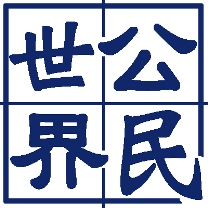Sam和外國同事Victor一起討論一個專案進度,Sam問Victor案子什麼時候會完成。
Sam:When will the project be completed?
Victor:I can’t say.
「不能說?」Sam聽了有些生氣,覺得同事沒禮貌,明明一起工作,為什麼不能說?原來,I can’t say在這個語境下,是「我也說不準、不知道」。
I can’t say.
(X)我不能說。
(O)我不知道/我不確定。
當我們對問題不確定、沒有足夠訊息做判斷的時候,可以用I can’t say來表達,和中文裡的「我也說不準」一樣,有時也可以加上for sure / for certain:
I can't say for certain.(我說不準。)
I can't say who did the best.(我說不準誰表現得最好。)
這個用法大家可能不熟,再看一個對話場景:
A:Who do you think will win the championship?(你認為誰能贏得冠軍?)
B:I really can't say. Both teams this year seem really good.(不好說,今年兩個隊看來都不錯。)
還有一個接近的用法「I can’t think」:
I can’t think.
(X)我不能想。
(O)我想不起來。
來看幾個和say相關的口語地道用法,別搞錯意思了!
I'll say!
(X)我會說。
(O)當然!的確如此!
I’ll say不是「我會說」,意思其實是「可不是嗎、我也有同感」,表示非常同意對方所說,完整的句子是I’ll say the same thing 。
A:It sure is hot today.(今天真的很熱。)
B:I'll say!(我也有同感!)
Just say the word.
(X)再說你試試看!
(O)吩咐一下、說一聲,表示一下。
Just say the word是一種表示願意提供幫助、非常友好和開放的表達方式,用在非正式的交流中。像是中文的「只要您需要,隨時為您效勞」。
例句:Just say the word, and I'll come and help.(你只要說一聲,我就會來幫忙。)
來看一段對話:
A:Would you like some water?(您想要點水嗎?)
B:Not now, maybe later.(現在不需要,待會吧。)
A:Just say the word.(好的,需要再跟我說。)
責任編輯:倪旻勤
核稿編輯:陳瑋鴻



